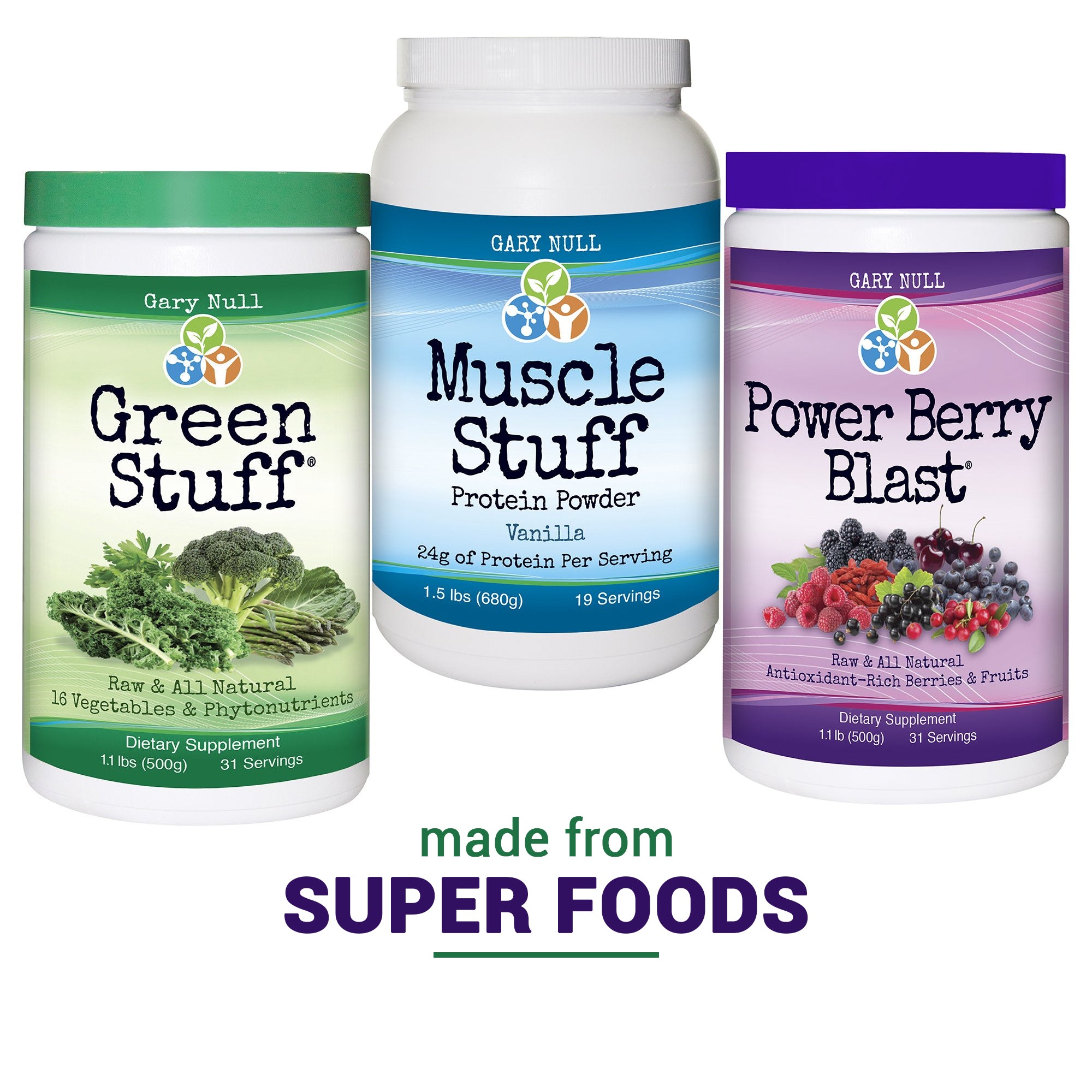Menú

Super Foods: What are they & Why you need them?
What Are Superfoods?
In recent years, nutritional supplements have become increasingly high tech, providing physicians and their patients with advanced formulations for many health-care needs. But despite their many benefits, these products should not detract from the more fundamental route to combating chronic disorders and improving one's health: the consumption of highly nutritious, powerhouse foods. Like all healthful foods, "super-foods" enhance a variety of bodily processes - but simply do it better.
These foods contain high levels of;
- Antioxidants
- Phytochemicals
- Phytosterols
- Dietary Fiber
These much-needed elements give the body both preventive and therapeutic health properties. Native traditions throughout the world have long held that certain vegetables, fruits, and grains are especially powerful purveyors of health benefits. But it was not until these natural products were studied through modern biochemistry, botanical science, molecular biology, and clinical research that their extraordinary properties became more widely known. In this article, we present 18 super foods that should be featured in the diet of health-care providers and their patients. The benefits described have been culled from the medical literature, and a sampling of the research conducted on these foods and their nutritional components is included in the references. What follows is a look at the specific preventive and curative properties of these super foods.
Apples

For thousands of years, apples (Malus sylvestrsis) have been used to address numerous medical conditions, including diabetes, fevers, inflammatory disorders, and heart ailments. In addition to confirming many of the healthful properties of apples, modern research has identified invaluable phytochemicals contained in the fruits. One phytochemical found in apples is phloretin, a natural antibiotic.
Apples also contain pectin and pectic acids that add essential bulk to a diet. The apple's tannins, quercetin, alpha-farnesene, shikimic acid, and chlorogenic acid offer health benefits as well. By increasing the production of the neurotransmitter acetylcholine, for example, they help offset cognitive decline due to oxidative damage. Apples also have high levels of phenols and polyphenols, and possess other antioxidant, chemoprotective properties. Consequently, they help guard against a variety of cancers, including leukemia and cancer of the colon, lung, breast, liver, and skin.
These chemicals also provide essential nutrients that improve cardiovascular health, reduce the risk of coronary heart disease and stroke, and prevent atherosclerosis.
Bananas

Although low in calories, bananas provide essential nutrients such as vitamin B6, vitamin C, potassium, and manganese. They also stimulate probiotic activity, which sustains a healthy gut flora. Bacteria in the gastrointestinal system are critical for the proper digestion and absorption of nutrients. Bananas help keep this system on track. Recent findings have indicated that bananas may offer protection against kidney cancer, particularly in women, and aid renal function.

While garlic contains phytonutrients similar to those found in onions, it also possesses selenium, a substance that, according to some studies, offers protection against various cancers and the deterioration of the body caused by free radicals.
Researchers have studied the ability of garlic to guard against heart disease and arterial calcification (hardening of the arteries) and to reduce cholesterol and blood pressure. Because it is a source of the flavonoid quercetin, garlic contains antibiotic properties that empower it to fight colds, stomach viruses, and yeast infections.
Ginger

Ginger is used throughout the world to cure dyspepsia (stomach upsets), reduce gastrointestinal gases, and relieve nausea caused by pregnancy, seasickness, and even drugs used in chemotherapy. Ginger is composed largely of fragrant essential oi Is that give it a distinctive aromatic flavor. One of these oils, gingerol, makes it a natural sedative for calming the gastrointestinal tract. This oil also provides some protection against pathogenic bacteria that upset the stomach.
Ginger is rich in antibiotic properties that combat the Gl infections which cause diarrhea and dehydration. Folk medicine has long honored ginger. While some scientists may dismiss folk medicine, it should be remembered that many modern pharmaceuticals were derived from folk remedies and then price-tagged. This folk science, now supported by modern science, has viewed ginger as a mild immune booster that wards off colds, flus, sinus congestion, and coughs. New evidence suggests that ginger helps to lower cholesterol. Preliminary findings in animal studies also suggest that ginger may help to treat diabetes.
- Elegir una selección da como resultado una actualización de página completa.


